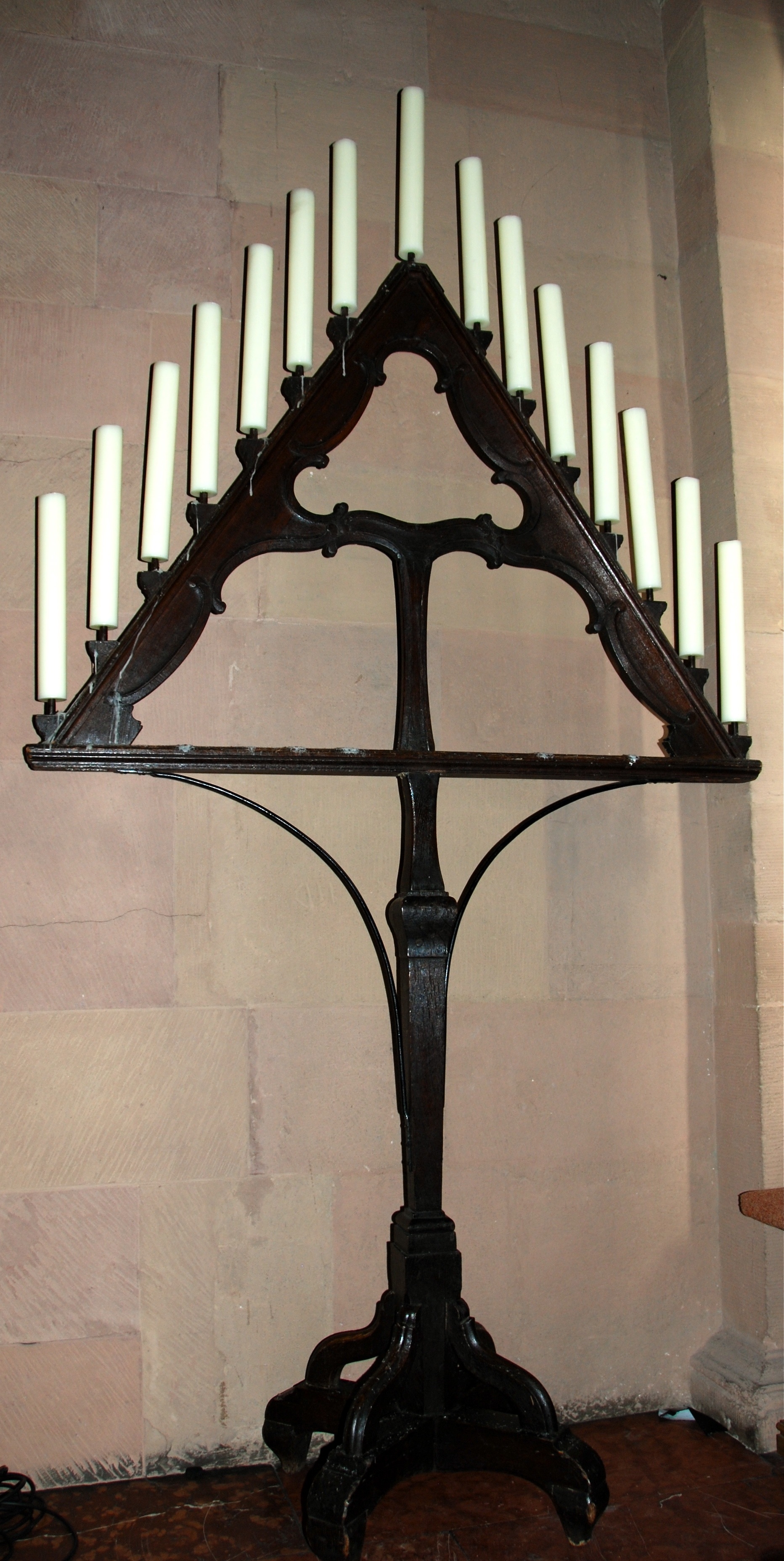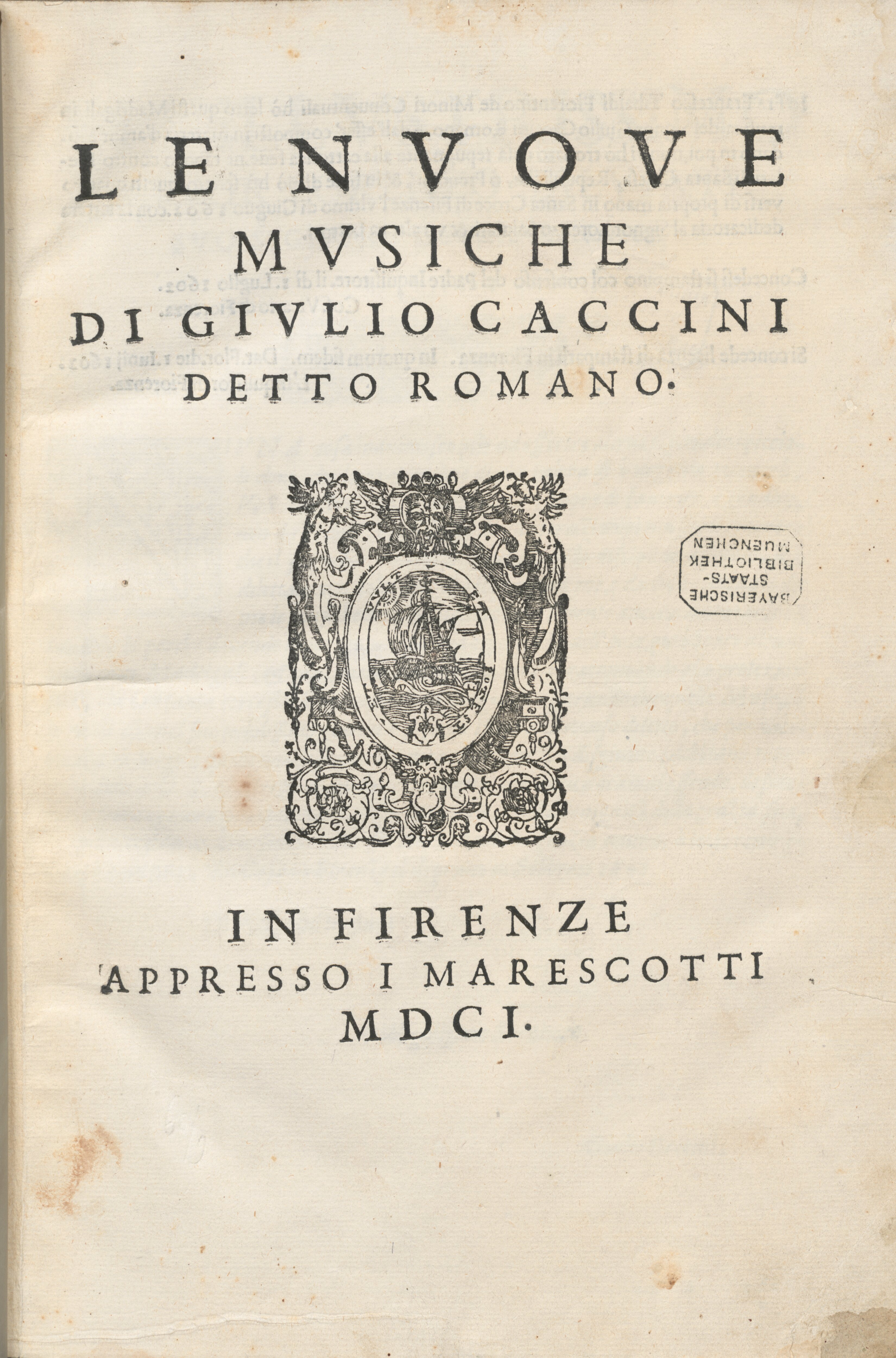|
Pomponio Nenna
Pomponio Nenna (baptized 13 June 1556 – 25 July 1608) was a Neapolitan Italian composer of the Renaissance. He is mainly remembered for his madrigals, which were influenced by Gesualdo, and for his polychoral sacred motets, posthumously published as Sacrae Hebdomadae Responsoria in 1622. Life Pomponio Nenna was born in Bari, in Apulia at the Kingdom of Naples. His father, Giovanni Battista Nenna, was a city official in Bari and was the author of "''Il Nennio : nel quale si ragiona di nobiltà''", a book about nobility and virtuous character, published in 1542. Pomponio Nenna probably studied with Stefano Felis in Bari. In 1574 his first pieces of music to be published were four villanelle which were included in the collections of "''Villanelle alla Napolitana''", edited by Giovanni Jacopo de Antiquis, who may also have been one of Nenna's teachers. In 1582 Nenna dedicated his first book of madrigals to Fabrizio Carafa, the Duke of Andria, near Bari. Carafa had nom ... [...More Info...] [...Related Items...] OR: [Wikipedia] [Google] [Baidu] |
Kingdom Of Naples
The Kingdom of Naples ( la, Regnum Neapolitanum; it, Regno di Napoli; nap, Regno 'e Napule), also known as the Kingdom of Sicily, was a state that ruled the part of the Italian Peninsula south of the Papal States between 1282 and 1816. It was established by the War of the Sicilian Vespers (1282–1302), when the island of Sicily revolted and was conquered by the Crown of Aragon, becoming a separate kingdom also called the Kingdom of Sicily. In 1816, it reunified with the island of Sicily to form the Kingdom of the Two Sicilies. The territory of the Kingdom of Naples corresponded to the current Italian regions of Campania, Calabria, Apulia, Basilicata, Abruzzo, Molise and also included some areas of today's southern and eastern Lazio. Nomenclature The term "Kingdom of Naples" is in near-universal use among historians, but it was not used officially by the government. Since the Angevins remained in power on the Italian peninsula, they kept the original name of the Kingdom ... [...More Info...] [...Related Items...] OR: [Wikipedia] [Google] [Baidu] |
Eleonora D'Este (1561-1637)
Eleonora d'Este may refer to: * Eleonora d'Este (1515–1575), daughter of Alfonso I d'Este and Lucrezia Borgia, nun, and possibly a composer of religious music *Eleonora d'Este (1537–1581) Eleonora d'Este (19 June 1537, Ferrara – 19 February 1581) was a Ferrarese noblewoman. She was the fourth daughter of Ercole II d'Este, Duke of Ferrara and his wife Renée of France, the second daughter of Louis XII of France and Anne of ..., daughter of Ercole II d'Este and Renata di Francia * Eleonora d'Este (1561–1637), daughter of Alfonso d'Este, marquess of Montecchio * Eleonora d'Este (1595–1661), daughter of Cesare d'Este, duke of Modena *Leonora or Eleonora d'Este (1639–1640), daughter of Francesco I d'Este, duke of Modena * Eleonora d'Este (1643–1722), daughter of Francesco I d'Este, duke of Modena {{hndis ... [...More Info...] [...Related Items...] OR: [Wikipedia] [Google] [Baidu] |
Geruasio Melcarne
Girolamo Montesardo ('' fl.'' 1606 – ''c.'' 1620) was an Italian singer and composer. Life Although his surname was actually Melcarne, he was referred to by his home town Montesardo, a small town in the Province of Lecce. He worked as a singer at the San Petronio Basilica in Bologna, as a ''maestro di cappella'' at Fano and at Ancona. His earliest extant work was published in Florence in 1606.Carter and Walker His guitar book ''Nuova inventione d'intavolatura per sonare li balletti sopra la Chitarra Spagniuola'' is the earliest to have been printed using alphabet notation of chords for rasgueado playing a five-course guitar. This had been in use in Italy and possibly Spain for some time before 1606. Montesardo does not claim to have invented this form of notation. His 'Nuova inventione' refers to his system for indicating the metre and note values with which the music is played. This involves using upper case and lower case letters to represent the minim and the crotchet respect ... [...More Info...] [...Related Items...] OR: [Wikipedia] [Google] [Baidu] |
Carlo Milanuzzi
Carlo Milanuzzi (c. 1590 – c. 1647) was an Italian composer of the early Baroque era. Life Carlo Milanuzzi was born in Santa Natoglia, or Esanatoglia in the Marche region, to Milanuzzo and donna Felice, probably around 1590, but not after 1592, the starting-date of the Baptismal Books of the town, in which no documentation of his birth has been found. He spent most of his life in Venice. Though he was an Augustinian friar, he composed both sacred and secular music, and his work is very interesting particularly for the later development of the solo cantata. As Dinko Fabris wrote: «the collections of ''Ariose vaghezze'' published by Milanuzzi in Venice between 1622 and 1643 were a veritable mine of arias and proto-cantatas that had numerous affinities with Falconieri»; into the collections there are inserted many dances, and a quantity of them are for Spanish guitar.Dinko Fabris, ''Preface'', in «Carlo Milanuzzi da Santa Natoglia», cit., p. VII. For example, the 'Terz ... [...More Info...] [...Related Items...] OR: [Wikipedia] [Google] [Baidu] |
Anerio (other) (1567–1630)
{{Hndis, Anerio ...
Anerio may refer to two notable brothers who were composers in Italy: *Felice Anerio ( 1560–1614) *Giovanni Francesco Anerio Giovanni Francesco Anerio (7 July 1569 - 11 June 1630) was an Italian composer of the Roman School, of the very late Renaissance and early Baroque eras. He was the younger brother of Felice Anerio. Giovanni's principal importance in music histor ... [...More Info...] [...Related Items...] OR: [Wikipedia] [Google] [Baidu] |
Tenebrae
Tenebrae (—Latin for "darkness") is a religious service of Western Christianity held during the three days preceding Easter Day, and characterized by gradual extinguishing of candles, and by a "strepitus" or "loud noise" taking place in total darkness near the end of the service. Tenebrae was originally a celebration of matins and lauds of the last three days of Holy Week (Maundy Thursday, Good Friday, and Holy Saturday) in the evening of the previous day (Holy Wednesday, Maundy Thursday and Good Friday) to the accompaniment of special ceremonies that included the display of lighted candles on a special triangular candelabra. Modern celebrations called Tenebrae may be of quite different content and structure, based for example on the Seven Last Words or readings of the Passion of Jesus. They may be held on only one day of Holy Week, especially Spy Wednesday (Holy Wednesday). They may be held during the daylight hours and the number of candles, if used, may vary. Tenebrae lit ... [...More Info...] [...Related Items...] OR: [Wikipedia] [Google] [Baidu] |
Ferdinando Archilei
Ferdinando may refer to: Politics * Ferdinando I de' Medici, Grand Duke of Tuscany (1549–1609) * Ferdinando II de' Medici, Grand Duke of Tuscany (1610–1670) * Ferdinando de' Medici, Grand Prince of Tuscany (1663–1713), eldest son of Cosimo III de' Medici * Ferdinando Gonzaga, Duke of Mantua (1587–1626) * Ferdinando Carlo Gonzaga, Duke of Mantua and Montferrat (1652–1708), only child of Duke Charles II of Mantua * Ferdinando Fairfax, 2nd Lord Fairfax of Cameron (1584–1648), English politician and parliamentary general Sports * Ferdinando De Giorgi (born 1961), Italian volleyball player and coach * Ferdinando Meglio (born 1959), Italian fencer * Ferdinando Piani, Italian bobsledder Other * Ferdinando Galli-Bibiena (1656–1743), Italian architect and painter * Ferdinando Galiani (1728–1787), Italian economist during the Enlightenment * Ferdinando Piretti, an Italian mathematician * Ferdinando Sardella, a Swedish scholar of the history of religion * ''Ferdinando Eboli'' ... [...More Info...] [...Related Items...] OR: [Wikipedia] [Google] [Baidu] |
Diana Vittoria Carafa
Diana most commonly refers to: * Diana (name), a given name (including a list of people with the name) * Diana (mythology), ancient Roman goddess of the hunt and wild animals; later associated with the Moon * Diana, Princess of Wales (1961–1997), formerly Lady Diana Spencer, was an activist, philanthropist, and member of the British royal family Places and jurisdictions Africa * Diana (see), a town and commune in Souk Ahras Province in north-eastern Algeria * Diana's Peak, the highest point on the island of Saint Helena * Diana Region, a region in Madagascar * Diana Veteranorum, an ancient city, former bishopric and present Latin Catholic titular see in Algeria Americas * Diana, New York, a town in Lewis County, New York, United States * Diana, Saskatchewan, a ghost town in Canada Asia * Diana, Iraq, a town in Iraqi Kurdistan Europe * Diana (Rozvadov), an almost abandoned settlement in the Czech Republic * Diana, Silesian Voivodeship, a village in south Poland * Diana Fortr ... [...More Info...] [...Related Items...] OR: [Wikipedia] [Google] [Baidu] |
Andrea Gabrieli
Andrea Gabrieli (1532/1533Bryant, Grove online – August 30, 1585) was an Italian composer and organist of the late Renaissance. The uncle of the somewhat more famous Giovanni Gabrieli, he was the first internationally renowned member of the Venetian School of composers, and was extremely influential in spreading the Venetian style in Italy as well as in Germany. Life Details on Gabrieli's early life are uncertain. He was probably a native of Venice, most likely the parish of S. Geremia. He may have been a pupil of Adrian Willaert at St. Mark's in Venice at an early age. There is some evidence that he spent time in Verona in the early 1550s, due to a connection with Vincenzo Ruffo, who worked there as ''maestro di cappella'' – Ruffo published one of Gabrieli's madrigals in 1554, and Gabrieli also wrote some music for a Veronese academy. Gabrieli is known to have been organist in Cannaregio between 1555 and 1557, at which time he competed unsuccessfully for the post of org ... [...More Info...] [...Related Items...] OR: [Wikipedia] [Google] [Baidu] |
Antiphonal
An antiphonary or antiphonal is one of the liturgical books intended for use (i.e. in the liturgical choir), and originally characterized, as its name implies, by the assignment to it principally of the antiphons used in various parts of the Latin liturgical rites. Medieval antiphonaries varied with regional liturgical tradition. In 1570, following the Council of Trent, the Roman Rite antiphonary was declared universal. The Roman Antiphonary (''Antiphonale Romanum'') contains the chants for the canonical hours for the hours of Lauds, Prime, Terce, Sext, None, Vespers and Compline for every day of the year. The ''Vesperale Romanum'' is an excerpt of the Antiphonary containing the chants sung at Vespers. The music for use at the Mass is contained in the Roman Gradual (''Graduale Romanum''), the chants of the ordinary are also edited as an excerpt from the Gradual, the ''Kyriale Romanum''. The ''Antiphonale Romanum'' was substantially revised in 1910–11 in the course of the ... [...More Info...] [...Related Items...] OR: [Wikipedia] [Google] [Baidu] |
Giulio Caccini
Giulio Romolo Caccini (also Giulio Romano) (8 October 1551 – buried 10 December 1618) was an Italian composer, teacher, singer, instrumentalist and writer of the late Renaissance and early Baroque eras. He was one of the founders of the genre of opera, and one of the most influential creators of the new Baroque style. He was also the father of the composer Francesca Caccini and the singer Settimia Caccini. Life Little is known about his early life, but he is thought to have been born in Rome, the son of the carpenter Michelangelo Caccini; he was the older brother of the Florentine sculptor Giovanni Caccini. In Rome he studied the lute, the viol and the harp, and began to acquire a reputation as a singer. In the 1560s, Francesco de' Medici, Grand Duke of Tuscany, was so impressed with his talent that he took the young Caccini to Florence for further study. By 1579, Caccini was singing at the Medici court. He was a tenor, and he was able to accompany himself on the viol or ... [...More Info...] [...Related Items...] OR: [Wikipedia] [Google] [Baidu] |


